Applicants must be studying or have studied a relevant degree area. Please enquire at info@lovetheoceans.org if you’re unsure if your degree is relevant to marine conservation. Not qualified? Don’t worry, you can apply for our Conservation Adventure Program or our 2 week program.
Applicants must be +18 on the time of arrival. We’re busy developing an under 18s program at the moment. Watch this space!
Applicants must be at least PADI Open Water qualified. If you are not Open Water qualified, it is possible to come and do your Open Water the week before your program starts at an extra cost. Please email info@lovetheoceans.org for details.





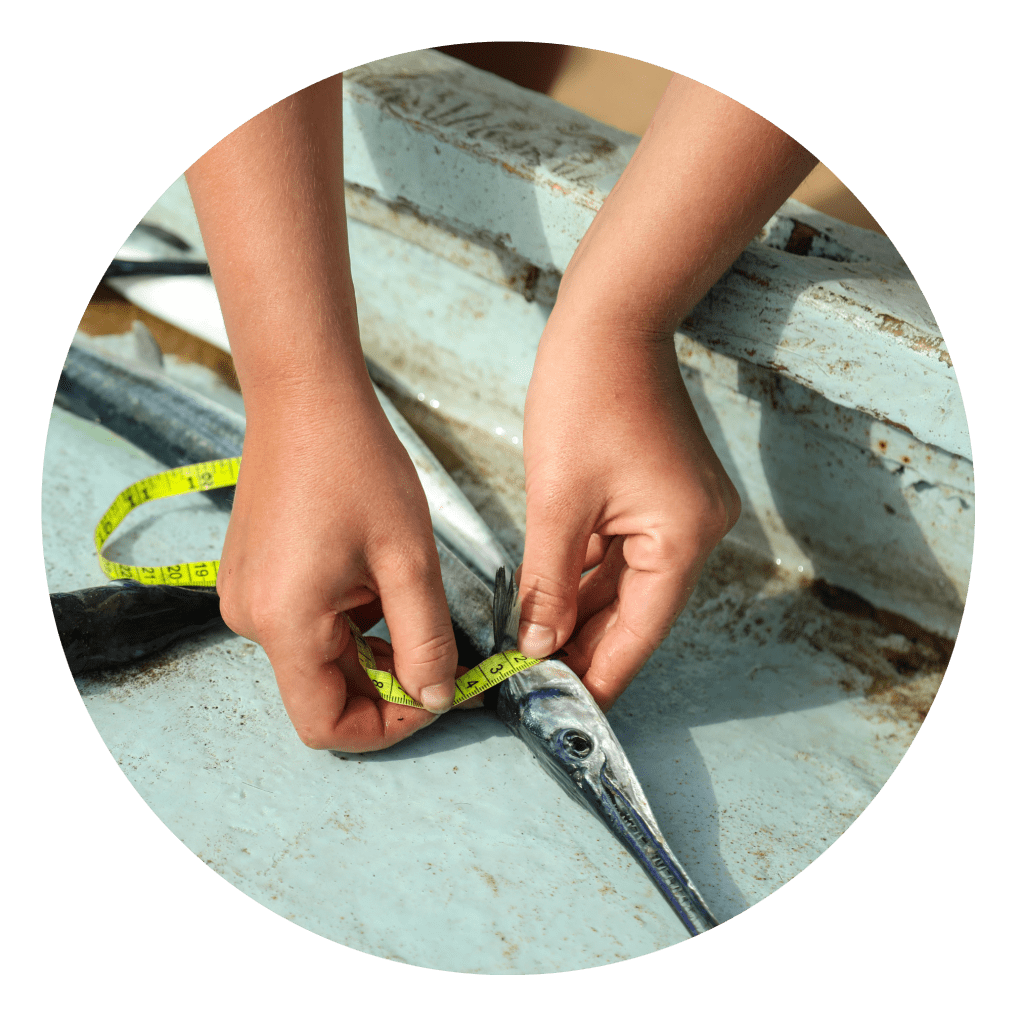




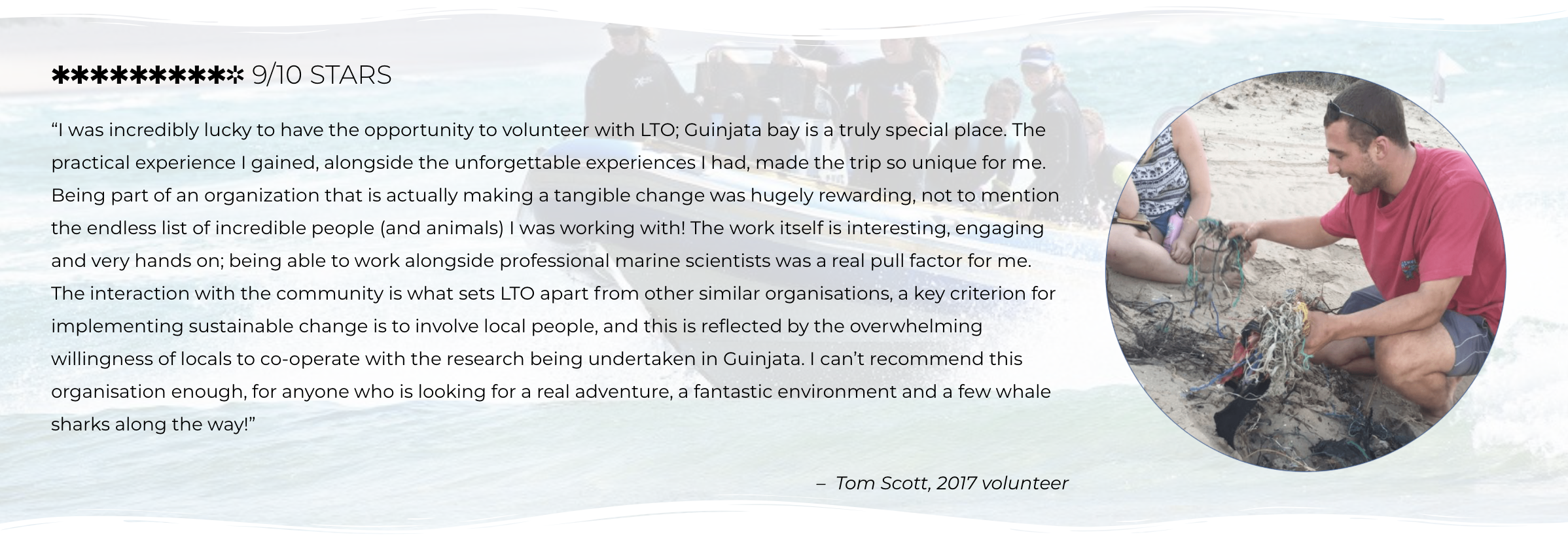
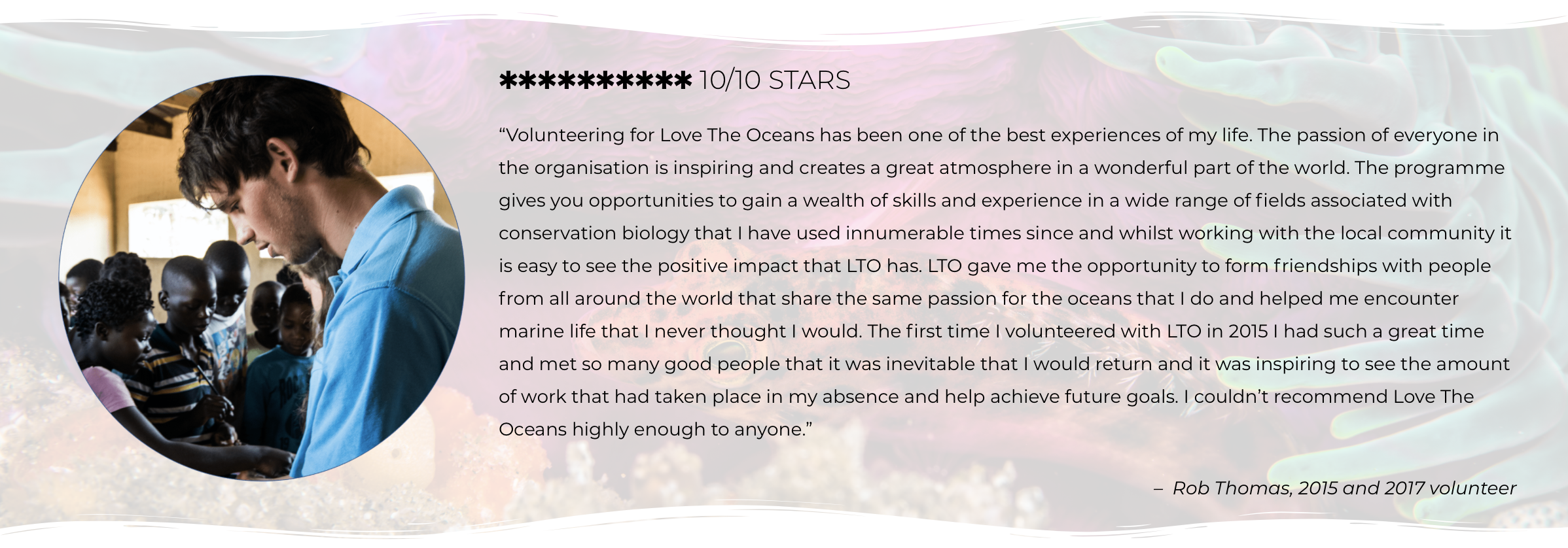
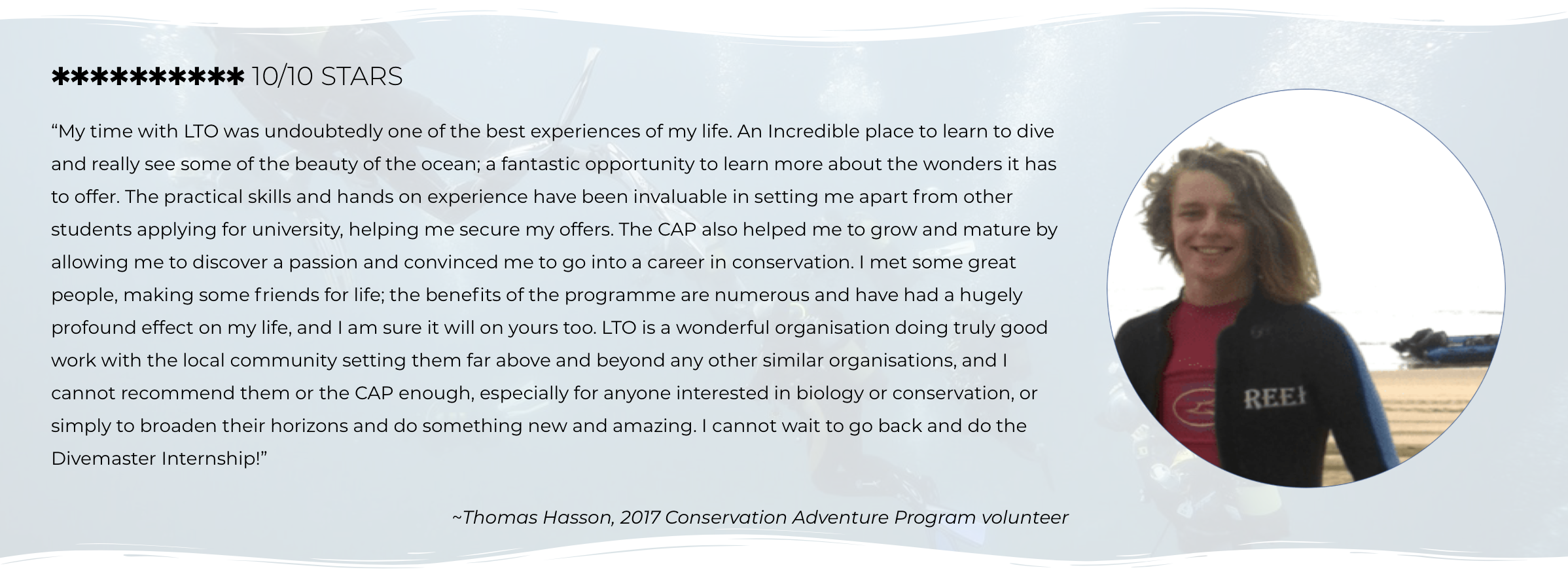
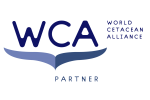


![Oceans New Logo WINNER 2021 FINAL BM[5] Oceans New Logo WINNER 2021 FINAL BM[5]](https://lovetheoceans.org/wp-content/uploads/elementor/thumbs/Oceans-New-Logo-WINNER-2021-FINAL-BM5-p75rusr4xoa6lpy31siy5h87ma4akt1j9oikbrp734.png)


